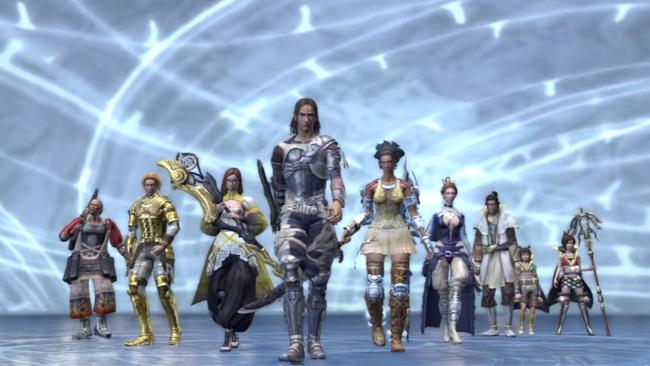
Fifteen years on, Lost Odyssey is a perfect swansong for the formula Hironobu Sakaguchi perfected
It’s quite hard to believe, but Lost Odyssey turns fifteen years old today. A curious product of the time, it has arguably only got better with age - and not just because of what it is, but also what it represents.
Lost Odyssey was born out of two key factors: the exit of Final Fantasy creator Hironobu Sakaguchi from Square Enix, and desperation on the part of Xbox and Microsoft Game Studios - they needed Japanese games.
So, the idea was pretty simple. The pitch was probably more simple still. Microsoft probably went to Sakaguchi and said, “can you make us a Final Fantasy?” And that’s what Lost Odyssey is. Fans reductively refer to it as the alternate-universe Final Fantasy XIII - and in many ways, it is just that.
That’s part of what makes Lost Odyssey special, but it’s also not the whole story. This is Sakaguchi experimenting with a tone that he perhaps might not have in the core FF series. It’s also FF’s creator, paired with a range of talent including well-known Japanese writer Kiyoshi Shigematsu and long-time FF composer Nobuo Uematsu, examining his legacy. Lost Odyssey is as much not FF as it is a quiet ‘FF clone’ - and that’s what makes it fascinating.
The results are compelling. Uematsu’s score utterly soars. The introduction of novel-like story sequences as part of the ‘Thousand Years of Dreams’ segments is inspired. And there’s fun to be had, too - like the tongue-in-cheek inclusion of a ship-owning, gruff old engineer called… Sed. There's twin mages intended as an obvious call back to Final Fantasy IV. Lost Odyssey is quite serious, and often rather profound, but it also has its tongue firmly planted in its cheek when referencing its inspirations.

It’s also a game that is, in a sense, one of the last of its kind from the Final Fantasy lineage. FF began to strike off in new directions from here - inspired by Western games, or by dissecting and trying to reconstruct a ‘new’ Final Fantasy VII. The heavily western-inspired Final Fantasy XVI feels to underline just how far the series has diverged from these days - but Lost Odyssey feels like more of a natural continuation from those early 3D years of Final Fantasy. The skill learning system bears a striking resemblance to Final Fantasy IX, for instance, while the pace of combat somewhat recalls Final Fantasy X. It’s a confluence of elements we’ve seen in different games presented in a new and interesting way.
Perhaps the single most interesting mechanical wrinkle in the game stems from its narrative setup - the concept that several members of the game’s cast are immortal. Immortality isn’t a unique concept in Japanese RPGs, but Lost Odyssey weaves it both into the angst of the story and even into the battle and progression mechanics in a way which is unmatched - and it also uses this setup to toy with and tease at genre tropes. We get mothers and sons, wise old grandfathers and cute grandchildren - but not in the way you’d think.
Hironobu Sakaguchi and Mistwalker have gone on to make some truly special games in the years since Lost Odyssey, including excellent iOS exclusive game of the year contender Fantasian last year. But since Lost Odyssey, Sakaguchi’s work has felt to have a different tone and timbre to the games that made him most famous. In many ways, Lost Odyssey is the swansong and capper on a particularly recognizable phase of the career of the man who gave us Final Fantasy - and it’s worthy of that status, even fifteen years on.
Lost Odyssey deserves to be played by all fans of Final Fantasy, Japanese RPGs, and Sakaguchi’s work. It’s a classic - and plays beautifully via backwards compatibility on the Xbox Series X, S, and Xbox One consoles. And Xbox... pick up the phone, yeah? Phil, call Sakaguchi. Let's get another one going. These characters are immortal, after all...